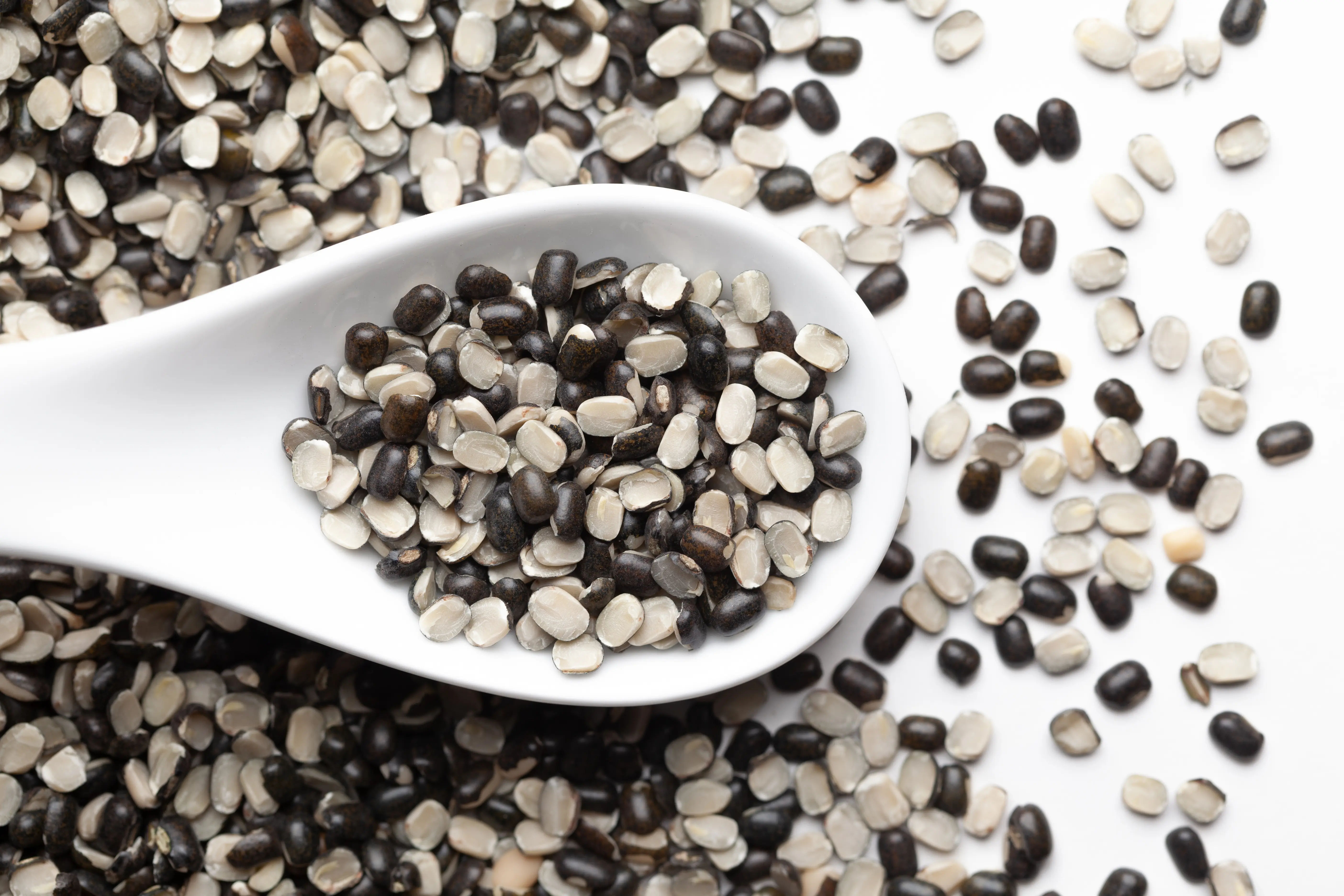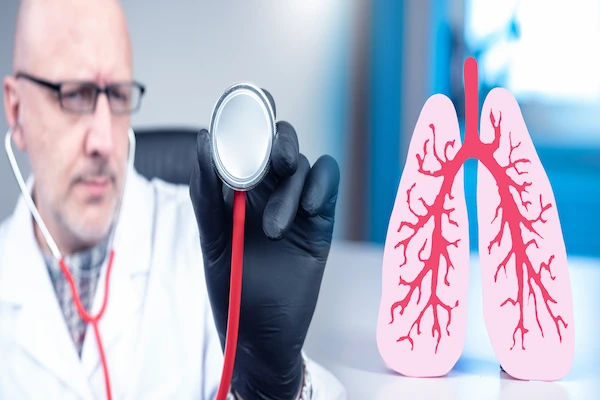Guide to Importance Of Gut Health
Discover the crucial role of gut health in your overall well-being. This comprehensive guide explains the importance of a healthy gut, its connection to immunity and mental health, and practical tips for improving your digestive system naturally.

Written by Dr. Dhankecha Mayank Dineshbhai
Reviewed by Dr. Rohinipriyanka Pondugula MBBS
Last updated on 13th Jan, 2026

Introduction
We often think of gut health as simply avoiding stomach aches, but it's so much more than that. Nestled within your digestive tract is a complex ecosystem of trillions of bacteria, viruses, and fungi known as the gut microbiome. This bustling community plays a starring role in your overall health, influencing everything from your digestion and immune response to your mood and even the health of your skin. Understanding the importance of gut health is like discovering a hidden control panel for your well-being. When this inner ecosystem is balanced, you feel energetic, clear-headed, and resilient. When it's out of balance, it can trigger a cascade of issues far beyond bloating. This comprehensive guide will demystify your gut microbiome, explore its profound connections to every part of your body, and provide you with a practical, actionable plan to nurture it for a healthier, happier you.
What exactly is Gut Health? More Than Just a Happy Stomach
Gut health refers to the optimal functioning and balance of the entire gastrointestinal (GI) tract. It's not just the absence of discomfort; it's about the harmonious relationship between the trillions of microorganisms living in your gut and your own body.
Meet Your Gut Microbiome: The Universe Within
Imagine a vast, diverse rainforest inside you. That's your gut microbiome. This community is unique to you, like a fingerprint, and is composed of both beneficial and potentially harmful microbes. A healthy gut is characterized by a high diversity of these beneficial bacteria. They work tirelessly to break down food, synthesize essential vitamins like B12 and K, and protect you from pathogens. The balance of this internal ecosystem is fundamental to the importance of gut health and is influenced by diet, lifestyle, antibiotics, and stress.
The Gut Barrier: Your Body's First Line of Defense
Your gut lining is more than a passive tube; it's a sophisticated barrier designed to let nutrients into your bloodstream while keeping toxins and undigested food particles out. When this barrier becomes compromised—a condition often referred to as "leaky gut" or increased intestinal permeability—it can allow harmful substances to "leak" into the body, triggering inflammation and immune responses. This is a critical reason why maintaining a strong gut barrier is central to overall wellness.
Consult Top Specialists
Why Your Gut is Your Second Brain?: The Far-Reaching Impacts
The importance of gut health extends far beyond digestion. Your gut communicates with every major system in your body, making it a cornerstone of your physical and mental well-being.
The Gut-Brain Axis: How Your Gut Influences Your Mood
Your gut and brain are in constant conversation via the vagus nerve, a superhighway of communication known as the gut-brain axis. Your gut bacteria produce a staggering 90-95% of your body's serotonin, the "feel-good" neurotransmitter. This is why an imbalance in gut bacteria has been strongly linked to mood disorders like anxiety and depression. If you've ever felt "butterflies" in your stomach or had a "gut-wrenching" experience, you've felt this connection firsthand.
The Gut-Immune System Connection: Your Personal Bodyguard
Did you know that approximately 70-80% of your immune system resides in your gut? Gut-associated lymphoid tissue (GALT) is your body's largest immune component. A healthy, diverse microbiome trains your immune cells, helping them distinguish between friend and foe. This helps your body fight off infections effectively while preventing it from overreacting to harmless substances, which is the basis of allergies and autoimmune conditions.
Gut Health and Skin: The Gut-Skin Axis Explained
The condition of your skin is often a reflection of your internal health, particularly your gut. Inflammation in the gut can manifest on the skin as conditions like acne, eczema, or psoriasis. This gut-skin axis works through systemic inflammation and immune signaling. By addressing gut inflammation, many people see a significant improvement in their skin clarity and health.
Your Gut's Role in Metabolism and Heart Health
Your gut bacteria play a key role in metabolizing nutrients and even influencing your weight. Certain bacterial strains affect how you extract energy from food and store fat. Furthermore, some beneficial bacteria help break down dietary fiber into short-chain fatty acids like butyrate, which have anti-inflammatory effects and can help regulate cholesterol levels, directly supporting heart health.
Red Flags: 7 Signs of an Unhealthy Gut
How do you know if your gut needs attention? Your body sends clear signals. Persistent issues can be a sign of an unhealthy gut:
1. Upset Stomach: Frequent gas, bloating, heartburn, diarrhea, or constipation.
2. Food Intolerances: Difficulty digesting certain foods, often due to poor-quality gut bacteria.
3. Unintentional Weight Changes: An imbalanced gut can impair your body's ability to absorb nutrients and regulate blood sugar.
4. Sleep Disturbances or Constant Fatigue: An unhealthy gut can disrupt the production of serotonin, which is a precursor to the sleep hormone melatonin.
5. Skin Irritation: Inflammatory skin conditions like eczema can be linked to a damaged gut barrier.
6. Autoimmune Conditions: Chronic gut inflammation may dysregulate the immune system.
7. Sugar Cravings: A diet high in processed foods and sugar can decrease the good bacteria in your gut, creating a cycle of more cravings.
If you experience several of these symptoms persistently, it may be wise to seek professional advice. You can consult a doctor online with Apollo24|7 to discuss your symptoms and get personalized guidance.
Healing from Within: A Practical Guide to Improving Your Gut Health
The good news is that you can positively influence your gut microbiome. Here’s a practical guide on how to improve gut health naturally.
Feed the Good Bugs: The Power of Prebiotics and Probiotics
- This is the core of gut-nourishing nutrition. Understanding the difference between probiotics and prebiotics is key.
- Probiotics are live beneficial bacteria found in fermented foods and supplements. They add to the population of good guys in your gut.
- Prebiotics are types of dietary fiber that act as food for the beneficial bacteria already living in your gut. They help them thrive and multiply.
Probiotic-Rich Foods to Add to Your Diet
- Yogurt (with live, active cultures)
- Kefir (a fermented milk drink)
- Sauerkraut and Kimchi (fermented vegetables)
- Kombucha (a fermented tea)
- Miso and Tempeh
Top Prebiotic Foods for Fueling Good Bacteria
- Garlic, Onions, and Leeks
- Asparagus and Artichokes
- Bananas (especially slightly green ones)
- Oats and Barley
- Chicory Root and Dandelion Greens
Lifestyle Tweaks for a Thriving Gut
Diet is crucial, but lifestyle factors are equally important.
- Manage Stress: Chronic stress wreaks havoc on your gut bacteria. Practice stress-reduction techniques like meditation, yoga, or deep breathing.
- Prioritize Sleep: Aim for 7-8 hours of quality sleep per night to support a healthy microbiome.
- Stay Hydrated: Drinking plenty of water benefits the mucosal lining of the intestines.
- Exercise Regularly: Moderate exercise has been shown to increase the diversity of healthy gut bacteria.
- Avoid Unnecessary Antibiotics: While sometimes life-saving, antibiotics can decimate your good bacteria. Only take them when prescribed by a doctor.
Quick Takeaways: Key Points on Gut Health
- Your gut microbiome is a diverse community of microbes crucial for overall health.
- The gut is your "second brain," producing most of your body's serotonin.
- A healthy gut supports a robust immune system, clear skin, and a healthy metabolism.
- Signs of an unhealthy gut include chronic digestive issues, fatigue, and skin problems.
- Improve your gut health by eating a diverse diet rich in fiber, fermented foods, and healthy fats.
- Manage stress, prioritize sleep, and stay hydrated for a happy microbiome.
If your condition does not improve after trying these methods, book a physical visit to a doctor with Apollo24|7 for a comprehensive evaluation.
Conclusion
The science is clear: the importance of gut health cannot be overstated. It is not a niche health trend but a fundamental pillar of wellness that connects your digestive system to your brain, immune function, and beyond. By viewing your gut as a delicate internal garden, you can make conscious choices to nurture it. This means feeding it with nourishing, fiber-rich foods, managing the stressors that can poison its soil, and giving it the rest it needs to flourish. The journey to better health truly begins from within. Start by incorporating one or two gut-friendly habits this week—perhaps adding a serving of vegetables to each meal or taking a few minutes to de-stress. Your body, and your gut, will thank you for years to come.
Consult Top Specialists
Consult Top Specialists

Dr. Rajib Ghose
General Physician/ Internal Medicine Specialist
25 Years • MBBS
East Midnapore
VIVEKANANDA SEBA SADAN, East Midnapore

Dr. Abhishek Gowda
General Physician/ Internal Medicine Specialist
3 Years • MBBS MD General Medicine
Bengaluru
PRESTIGE SHANTHINIKETAN - SOCIETY CLINIC, Bengaluru

Dr. Santanu Mandal
General Physician/ Internal Medicine Specialist
18 Years • MD (Physician), DNB (General Medicine)
Kolkata
MCR SUPER SPECIALITY POLY CLINIC & PATHOLOGY, Kolkata
(25+ Patients)

Dr. Arindam Bauri
General Physician/ Internal Medicine Specialist
12 Years • MBBS, MD General Medicine
Kolkata
LifeCare, Kolkata
(25+ Patients)

Dr Aakash Andgi
General Physician/ Internal Medicine Specialist
9 Years • MBBS MD
Bengaluru
Apollo Clinic, JP nagar, Bengaluru
Consult Top Specialists

Dr. Rajib Ghose
General Physician/ Internal Medicine Specialist
25 Years • MBBS
East Midnapore
VIVEKANANDA SEBA SADAN, East Midnapore

Dr. Abhishek Gowda
General Physician/ Internal Medicine Specialist
3 Years • MBBS MD General Medicine
Bengaluru
PRESTIGE SHANTHINIKETAN - SOCIETY CLINIC, Bengaluru

Dr. Santanu Mandal
General Physician/ Internal Medicine Specialist
18 Years • MD (Physician), DNB (General Medicine)
Kolkata
MCR SUPER SPECIALITY POLY CLINIC & PATHOLOGY, Kolkata
(25+ Patients)

Dr. Arindam Bauri
General Physician/ Internal Medicine Specialist
12 Years • MBBS, MD General Medicine
Kolkata
LifeCare, Kolkata
(25+ Patients)

Dr Aakash Andgi
General Physician/ Internal Medicine Specialist
9 Years • MBBS MD
Bengaluru
Apollo Clinic, JP nagar, Bengaluru
More articles from General Medical Consultation
Frequently Asked Questions
What are the first signs of an unhealthy gut?
The most common early signs include persistent bloating, gas, constipation, diarrhea, heartburn, and unexplained fatigue. Food intolerances and strong sugar cravings are also red flags.
What is the difference between a probiotic and a prebiotic?
Think of probiotics as the seeds (live beneficial bacteria you add to your gut) and prebiotics as the fertilizer (the fiber that feeds the good bacteria already there). Both are essential for a healthy gut microbiome.
How long does it take to improve gut health?
It varies from person to person, but you may notice improvements in digestion within a few weeks of consistent dietary and lifestyle changes. Significant repopulation of your gut flora can take several months.
Can gut health affect anxiety?
Absolutely. Through the gut-brain axis, an imbalance in gut bacteria can influence the production of neurotransmitters like serotonin, which plays a major role in regulating mood and anxiety.
Are probiotic supplements necessary?
While you can get probiotics from food, a high-quality supplement can be beneficial, especially after a course of antibiotics or for those with specific digestive issues. It's best to choose a supplement with multiple strains and a high CFU count, and consult a healthcare professional for personalized advice.




